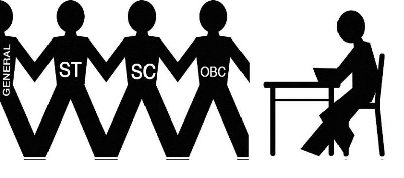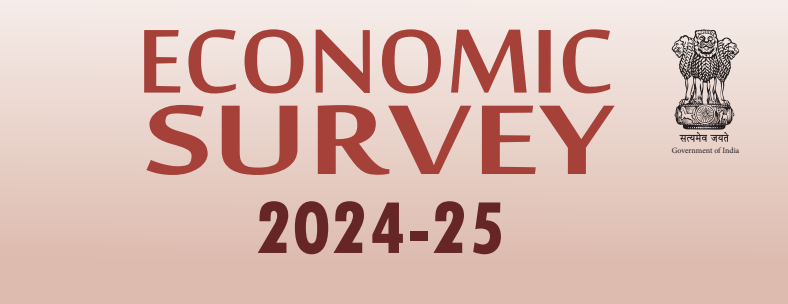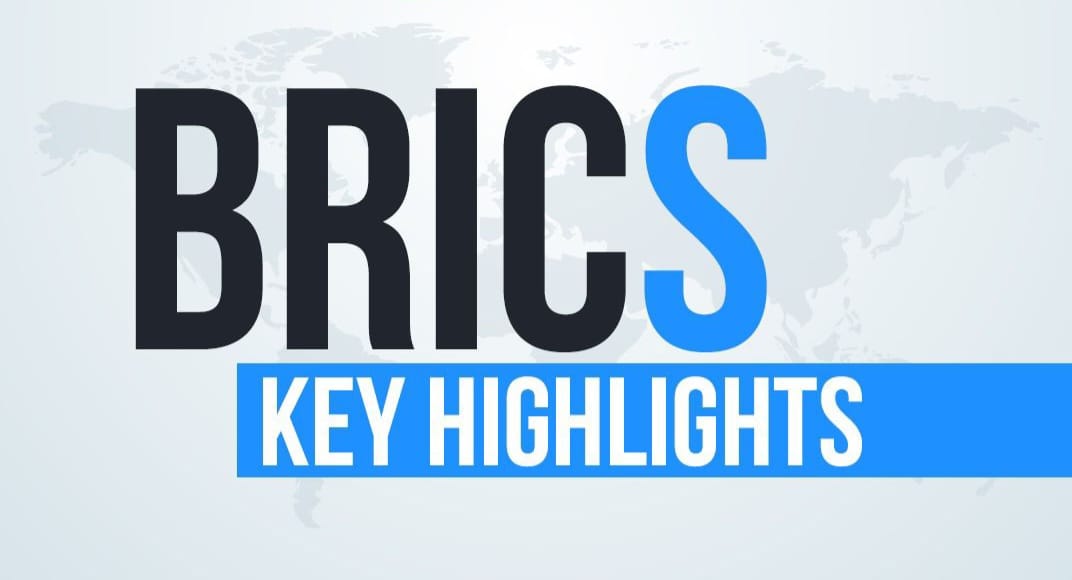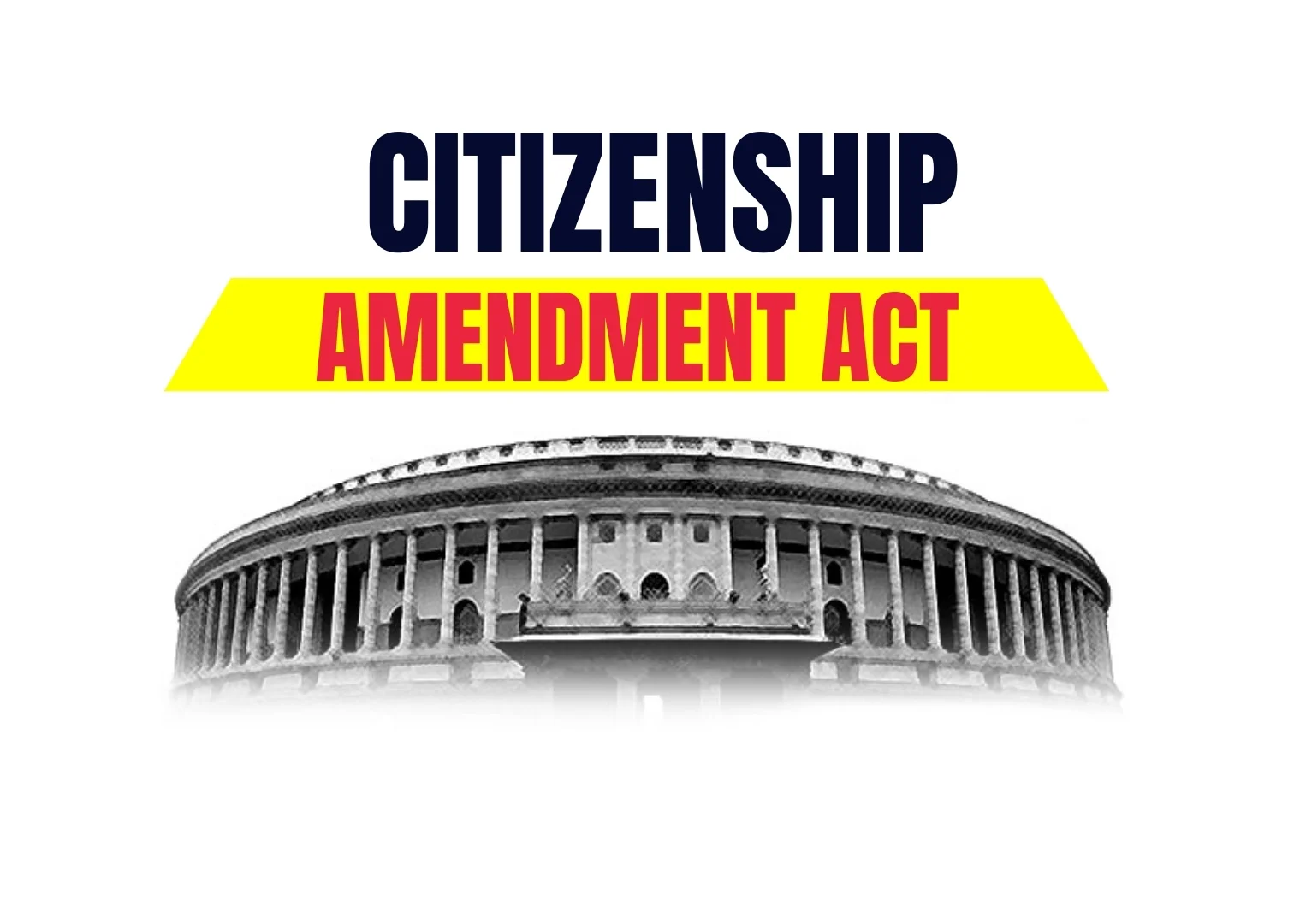What is Reservation:
Reservation in India is a system of affirmative action aimed at improving educational and employment opportunities and also eliminating discrimination for historically disadvantaged communities, such as Scheduled Castes (SC), Scheduled Tribes (ST), and Other Backward Classes (OBC).
Vertical and Horizontal Reservation:
- Vertical reservation means reservations for Scheduled Caste, Scheduled Tribes and Other Backward Classes. This type of reservation is applied separately for each of the groups specified under the law. For example, Article 16(4) is a type of vertical reservation.
- When other beneficiary categories, such as women, veterans, the transgender community, and people with disabilities, are given equal opportunities beyond the vertical categories, this is referred to as horizontal reservation.
Constitutional Provisions for Reservation:
- Article 15: Prohibition of Discrimination
- Clause 15(4): This clause allows the state to make special provisions for the advancement of socially and educationally backward classes of citizens or for the Scheduled Castes (SC) and Scheduled Tribes (ST). It is the basis for reservations in educational institutions.
- Clause 15(5): Introduced by the 93rd Constitutional Amendment (2005), this clause empowers the state to provide reservations for SCs, STs, and OBCs in educational institutions, including private institutions, except for minority educational institutions.
- Article 16: Equality of Opportunity in Public Employment
- Clause 16(4): This clause enables the state to make reservations in appointments or posts in favour of any backward class of citizens that, in the opinion of the state, is not adequately represented in public services.
- Clause 16(4A): Added by the 77th Amendment (1995), this clause allows for reservation in promotions for SCs and STs in government jobs.
- Clause 16(4B): Added by the 81st Amendment (2000), this clause allows the state to consider unfilled reserved vacancies as a separate class of vacancies and fill them in subsequent years without affecting the overall reservation limit.
- Clause 16(6): Added by the 103rd Amendment (2019), this clause allows for 10% reservation for Economically Weaker Sections (EWS) in government jobs and educational institutions.
Current status of Reservation in India:
- Constitutional Quotas:
- Scheduled Castes (SCs): 15% reservation in government jobs and educational institutions.
- Scheduled Tribes (STs):5% reservation.
- Other Backward Classes (OBCs): 27% reservation in government jobs and higher education.
- 27% OBC quota: This continues to be one of the most significant components of the reservation system. The criteria for OBC reservation exclude individuals from the “creamy layer” – those earning more than ₹8 lakh annually – to ensure the benefits reach the genuinely underprivileged.
- Economically Weaker Sections (EWS): Introduced in 2019, the 10% reservation for EWS applies to those who are not covered under SC/ST/OBC categories but have an annual family income below ₹8 lakh.
- Expansion and legal backing: The 103rd Constitutional Amendment, which introduced the EWS reservation, was upheld by the Supreme Court in November 2022. This 10% reservation is above the 50% limit for caste-based reservations, setting a precedent for income-based affirmative action. It applies to general category candidates from families earning less than ₹8 lakhs annually and possessing limited land and property.
- Controversy: The inclusion of EWS beyond the 50% cap has sparked debates about the balance between merit and reservation, but the court ruled it constitutional, stating that it addresses economic backwardness.
Landmark judgment on Reservation in India:
- Champakam Dorairajan vs. State of Madras (1951): The Supreme Court ruled that the communal reservation system in Madras violated Article 15(1), which prohibits discrimination based on religion, race, caste, or place of birth. This led to the First Constitutional Amendment (1951), introducing Article 15(4), which allowed the state to make special provisions for socially and educationally backward classes, SCs, and STs.
- Indira Sawhney Judgment (1992): 50% cap on reservations: The Supreme Court’s ruling in the Indra Sawhney case (1992) had set a 50% cap on reservations, which has since become a contentious issue with the introduction of EWS reservation pushing the total above this cap.
- EWS Reservation Case (2022): The Supreme Court upheld the 103rd Constitutional Amendment, which introduced 10% reservation for EWS, despite exceeding the 50% limit on total reservations.
Recent Developments Related to Reservation:
- Women Reservation Act, 2023:
- The Women’s Reservation Act, 2023 aims to increase women’s representation in the political sphere. It reserves one-third of all seats in the Lok Sabha (lower house of parliament) and state legislative assemblies for women, ensuring their participation in the decision-making processes of the country.
- Key provisions of the Act:
- Reservation of seats: One-third of all seats in the Lok Sabha and state legislative assemblies will be reserved for women.
- Rotation of reserved seats: The reserved seats will rotate among different constituencies in a prescribed manner.
- Reservation for women of SCs and STs: One-third of the total number of seats reserved for Scheduled Castes (SCs) and Scheduled Tribes (STs) will also be reserved for women of these groups.
- Mechanism for implementation: The Act establishes a mechanism for the identification and allocation of reserved seats.
- 102nd Constitutional Amendment Act, 2018:
- Constitutional Status to NCBC: The amendment inserts Article 338B into the Constitution, giving NCBC constitutional status and bolstering its stature.
- Changes in Article 342A: The amendment introduces this article, which empowers the President to notify the SEBC list for any state or union territory. However, this list can only be amended by Parliament.
Gandhiji said, “The true measure of any society can be found in how it treats its most vulnerable members.” While righting the historical wrongs is imperative to create a just society, a revision of the existing reservation regime also becomes binary.
Spread the Word







